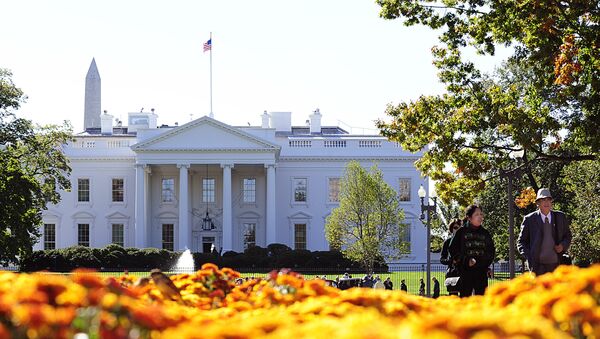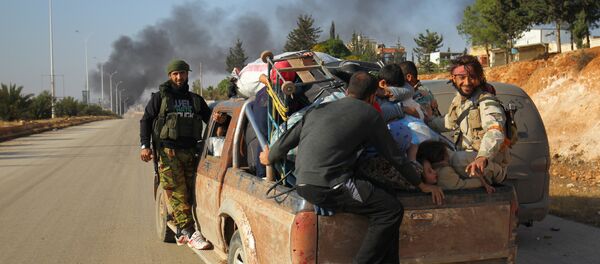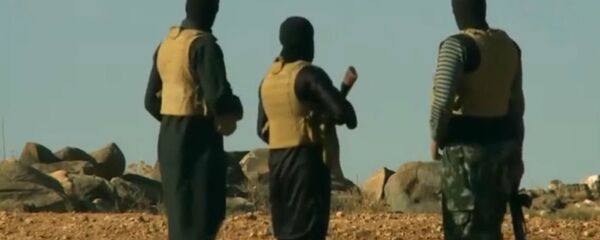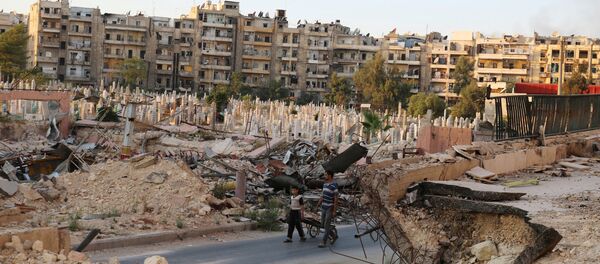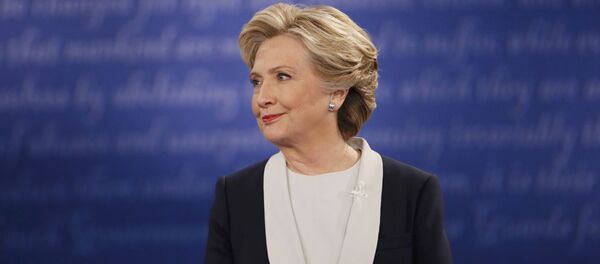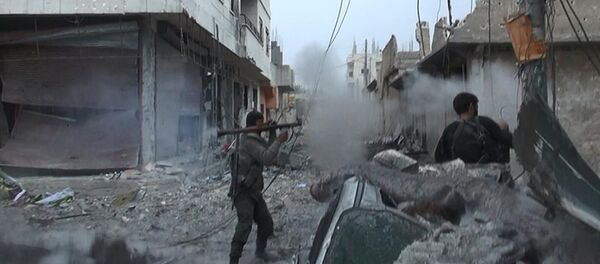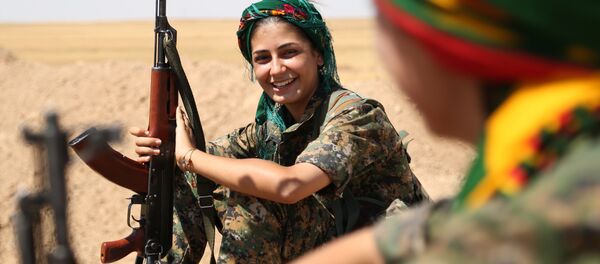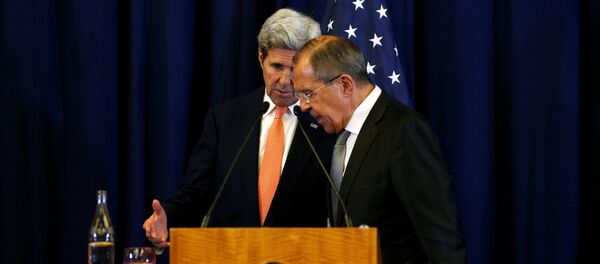MOSCOW (Sputnik), Anastasia Levchenko — When the next president of the United States shows up for a first day at work, there will be a number of pressing concerns to deal with, but the biggest issue he or she will face is undoubtedly the Syrian crisis.
The Middle Eastern country is engulfed by a long-running conflict between the government forces loyal to Syrian President Bashar Assad and the militants, made up of the so-called moderate opposition groups and hardline terrorist groups, including Nusra Front, recently renamed as Jabhat Fatah al Sham, and the Daesh, both outlawed in Russia and many other countries.
Whether the newly elected US president does a sharp U-turn on the predecessor’s policy or follows in his footsteps, the US strategy in Syria can shape the future of the Middle East and guide not only US-Russia bilateral ties, but also the development of international affairs in general.
OBAMA’S LEGACY
The US-led engagement in Syria has always run under the theme "Assad must go," which is the main source of all the contradictions between Moscow and Washington in Syria.
The United States started supplying Syrian rebels with non-lethal aid since the beginning of the civil war in 2011. The "red line" for the Obama administration for military force in Syria was the use of chemical weapons by the Syrian government. In August 2013, that line was crossed. The United States was on the verge of military strikes against the government forces, but that was averted by the efforts of Russian Foreign Minister Sergey Lavrov, who suggested the peaceful removal of 1,300 tons of Syria’s chemical weapons.
In September 2014, the US-led international coalition started strikes against Daesh targets inside Syria. Russia began air strikes on terrorists’ positions only a year later, in September 2015, upon the request of President Bashar Assad, which was not the case with the Western forces.
Obama’s policy in Syria has been criticized by both parties in the Congress. The outgoing president admitted in his September interview to Vanity Fair that Syria "haunts him constantly", making him question his decisions and look back searching for better alternatives.
"I would say of all the things that have happened during the course of my presidency, the knowledge that you have hundreds of thousands of people who have been killed, millions who have been displaced, [makes me] ask myself what might I have done differently along the course of the last five, six years," the US president said.
Obama is leaving his post, handing over to his successor Syria, which is seeing the deadlocked bilateral cooperation with Russia, extremists filling the power vacuum and thus raising the chances of the emergence of a new failed state in the region.
WHERE CANDIDATES STAND
The two presidential candidates have polar views on the Syria policy. While Clinton is committed to continuing the Democratic administration line and even hardening it, Trump wants to make a U-turn.
Hillary Clinton blames Russia and Iran for open support of President Assad and alleged attacks on civilians. She wants to renew the US pursuit to dominate in the Middle East, to be more active in containing Russia, Iran, and therefore to establish a no-fly zone in Syria.
"I'm going to continue to push for a no-fly zone and safe havens within Syria. Not only to help protect the Iranians and prevent the constant outflow of refugees, but to frankly gain some leverage on both the Syrian government and the Russians so that perhaps we can have the kind of serious negotiation necessary to bring the conflict to an end and go forward on a political track," Clinton said during the third debate.
Any no-fly zone for Syria proposal is almost definitely to be vetoed by Russia in the Security Council.
Trump, in turn, says that Russia, Syria and Iran are the only players who really fight against terrorists in the Middle East, he wants a closer coordination with Moscow, and believes that if Assad is overthrown, "you may well end up with worse than Assad."
Trump castigated the US support for the opposition groups in Syria and Iraq, claiming that it was impossible to know with any certainty who these people really were. "She [Clinton] talks in favor of the rebels. She doesn't even know who the rebels are," Trump said at the second presidential debates.
The Republican nominee believes that "Putin has outsmarted her [Clinton] and Obama at every single step of the way."
"She's been outsmarted by Putin. All you have to do is look at the Middle East. … We've spent $6 trillion. They've taken over the Middle East. She has been outsmarted and outplayed worse than anybody I've ever seen in any government whatsoever," Trump said during the third debate.
He seeks to "get along well with Russia after ISIS."
AS VIEWED BY SYRIANS
Obviously, various Syrian opposition groups have differing expectations from the next US president’s Syria policy.
The High Negotiations Committee (HNC), backed by Riyadh and seen by Washington as the main and moderate opposition group, supports the views of Hillary Clinton.
HNC spokesman Yahya Aridi criticized Trump for his "misperception that Assad is fighting terrorists" in an interview to Sputnik.
"Trump thinks that Assad is fighting terrorism. That is a misperception, misunderstanding of the overall situation. He is not aware of the fact that when the president attacks his own people, he loses legitimacy. Assad lost legitimacy," Aridi said.
The Cairo group of the Syrian opposition seems to have a more balanced position.
"I wouldn't count too much on what is being said now during the presidential campaign because facts would be different inside the Oval office. But I am definitely hoping that they would be able to revive the US- Russian agreement of cessation of hostility in order to protect Syrian civilians and pave the way to resume serious peace talks," Jihad Makdissi, leader of the Cairo group, told Sputnik.
"I think if we look at what Clinton said about Syria and the no-fly zone, it is clear that after 5 years of war it will put us back to the beginning of war. If the United States were serious about fighting terrorism, such proposals would never happen," Mais Krydee, official representative of the group, told Sputnik.
Hmeymim group praises Russia for helping the Syrian people. It views Russia’s engagement as essential for the political solution.
"It's hard to say who of them, Trump or Clinton, is better. But I think the way that Trump speaks about Syria is less violent and more realistic. He talks about the continuation of work with Russia against terrorism. It's positive if we consider it as a serious declaration of intentions. I think it's a good sign. Hillary, instead, is pushing for war," she added.
AS VIEWED BY KURDS
Kurds make up less than 10 percent of Syrian population, but this ethnic minority has played an important role both in the civil unrest and in the resistance to Islamic State. They have been trying hard to have their say in the intra-Syrian talks in Geneva, but have been largely excluded from the negotiations.
During the March round of talks in Geneva, Syrian Kurds back at home declared a "Federation of Northern Syria," or Rojava, autonomy that unites three Kurdish majority areas into one entity. The Syrian government and members of the opposition swiftly rejected the declaration.
Senam Mohamed, European Representative of the Rojava Administration, speaking to Sputnik, expressed hope that the new US president would help the war-torn country and the Kurds in particular.
"As for the next US president, whoever it will be, we as the administration of the Kurds hope the new government will play a positive role in ending the Syrian crisis and will end the terror in Syria and the world. … We hope that the new government in the USA can support the Kurdish issue and find a solution for it," Mohamed said.
"All components of Syrian state, including Kurds, must be taken into account," she reiterated.
Clinton said that she would be in favor of providing assistance to the Kurdish forces.
"I would consider arming the Kurds. The Kurds have been our best partners in Syria, as well as Iraq," Clinton said at the second presidential debate.
Trump called himself "a fan of the Kurds" in a July interview with The New York Times. He meant, however, the Turkish Kurds. Commenting on the foiled July 15 Turkish coup, he expressed hope that the government of Turkey would find a way to work with the Kurds minority.
The Kurds’ fight against Daesh in Syria is complicated by their relationship with the Turkish government. Ankara rejects the involvement in the military operations against Daesh of Kurdish Democratic Union Party (PYD) and its armed wing, the People's Protection Units (YPG), both of which Turkey considers extensions of the nationalist Kurdistan Workers’ Party (PKK). PKK is designated as a terrorist group in Turkey and the United States. Therefore, the US support to the Kurds, promised by Clinton, puts the United States at odds with Turkey.
AS VIEWED BY RUSSIANS
The US-Russian confrontation and cooperation on Syria is a political game of the two major global powers, according to Nikolai Zlobin, political analyst and founder and the current president of the Center on Global Interests in Washington.
Russia seeks to curb the US monopoly-like appetite for gaining leverage on the Middle East, the region of huge strategic and geopolitical importance.
"I am deeply convinced that the United States is unable to speak with anyone on equal footing today. No monopoly speaks to anyone on equal footing. The United States will only reckon with those who is able to challenge it – if not globally, then at least regionally. This is exactly what Russia is doing in Syria," Zlobin said.
The US presidential election will be held on November 8. Seems, the choice of the American people will be closely watched not only by the Western hemisphere, but also by the Middle Eastern countries. So far, Trump and Clinton run neck-and-neck, according to ABC News/Washington Post poll as of November 2.

